
Traditionally, the only way to earn airline status was to actually fly. And the only way to earn hotel status was to stay at hotels. But as loyalty programs shift their focus away from miles flown or nights stayed, and more towards money spent, the lines have become blurred.
You can now earn elite status with programs such as American Airlines AAdvantage without ever leaving the ground. Many hotels also now give away elite status to people who’ve never actually stayed at their properties.
Overall, that’s a great thing as it makes status more accessible and means more people can benefit from the perks. But it also means that genuine, loyal travellers who’ve spent thousands on flights or hotels must now compete for the same elite benefits with people who haven’t “earned” their status the hard way. Some frequent travellers might feel that this is unfair.
It can also be expensive for airlines and hotels to provide elite benefits to more people. But at the same time, that elite status might be the reason travellers choose their brand over another.
As a result, we’re starting to see a trend where some airline and hotel loyalty programs effectively have two different “tiers” of the same elite status levels. The full suite of benefits is reserved for travellers who’ve earned their status through actual flights or nights.
American Airlines Loyalty Point Rewards
Since 2022, you can earn American Airlines status by simply earning AAdvantage miles. For each eligible AAdvantage mile that you earn, you’ll also earn a Loyalty Point which counts towards status attainment.
AAdvantage also has a range of extra Loyalty Point Rewards that you earn between tiers as you earn Loyalty Points. For example, once you earn 15,000 Loyalty Points in a year, you get five preferred seat coupons and priority privileges for a trip. And upon earning 100,000 Loyalty Points, you unlock benefits including Avis President’s Club status.
These extra Loyalty Point Rewards aren’t technically status benefits. You only get them by earning Loyalty Points. So if you obtain AAdvantage status through other means – such as the AAdvantage status challenge or a Hyatt promotion – you wouldn’t have access to them.

KrisFlyer Milestone Rewards
Singapore Airlines’ loyalty program also provides a series of additional KrisFlyer Milestone Rewards as members earn more Elite miles during the same calendar year. These rewards include bonus miles, discount vouchers, redemption discounts and upgrades that are confirmed in advance.
Clearly, members who earn KrisFlyer status from a promotion or credit card wouldn’t qualify.
Hotel loyalty program “milestone rewards”
This trend is a lot more noticeable with hotel loyalty programs.
Many credit cards offer hotel elite status as a benefit for cardholders. For example, if you have an American Express Platinum card, you’re automatically eligible for Hilton Honors Gold, Marriott Bonvoy Gold Elite and Radisson Rewards Premium status. These are valuable perks that can get you lots of extra benefits when staying at affiliated hotels.
Marriott Bonvoy also offers Annual Choice Benefits to members who earn 50 and 75 Elite Night Credits during the year. These are the same tier thresholds required to earn Platinum and Titanium status with Marriott Bonvoy. But by tying these benefits to nights stayed, rather than the status levels themselves, Marriott is ensuring that only people who earned their status through actual hotel stays will get these extra benefits.
World of Hyatt and IHG One Rewards also offer Milestone Rewards which are separate to the elite status tiers. For example, by staying 40 nights in a year in IHG hotels, you can choose to get both a confirmable suite upgrade and an annual lounge membership.

The threshold for IHG One Rewards Platinum status is also 40 nights per year. But the Milestone Rewards are deliberately not tied directly to the status tiers because IHG only wants to give these rewards to people who actually stayed the 40 nights.
Many IHG Platinum members don’t have lounge access. That may seem illogical at first, but makes sense if you consider that many Platinum members would have got their status through a status match, status challenge or a US credit card.

With more and more loyalty programs offering new pathways to status that don’t require actual flying or hotel nights, this trend makes sense. If you want the full suite of benefits, you need to earn them the hard way. This seems fair.
Could this trend come to Australia?
There are already a few ways to earn Qantas or Velocity status credits without flying.
For example, it’s now possible to earn small amounts of Velocity status credits by shopping at Coles or spending on an Amex Velocity Platinum credit card. There’s also a current promotion where you can earn 200 Velocity status credits with a credit card sign-up. Plus, you can choose Qantas status credits as a reward for achieving Green Tier.
But to earn Gold or higher status with Qantas or Virgin, you would still need to earn the vast majority of status credits from flying. Both airlines also require tiered frequent flyers to take a minimum number of Qantas or Virgin Australia flights each membership year. So, neither Qantas nor Velocity Frequent Flyer have adopted two-tiered status rewards… at least, not yet.
But this is something we could see more of in the future as more loyalty programs look to reward members for the overall value they bring to the company.

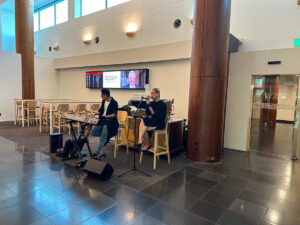



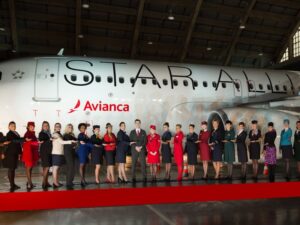
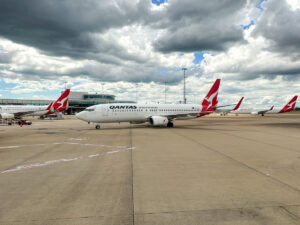
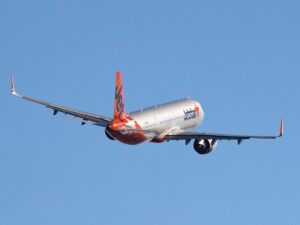




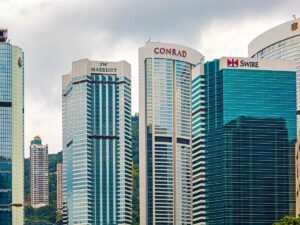







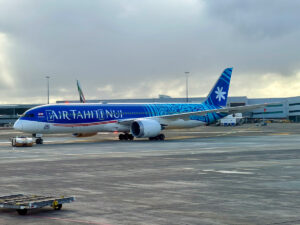
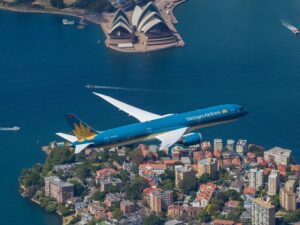
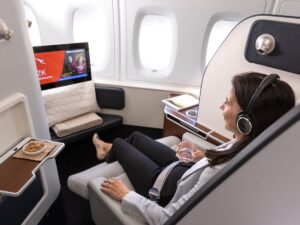





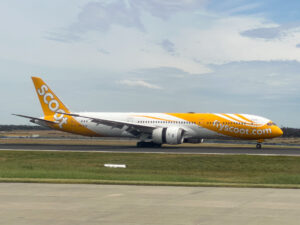







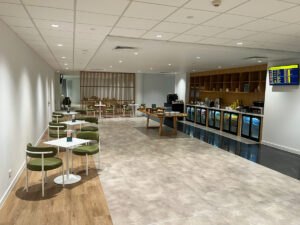
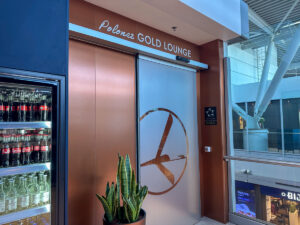








































Community Comments
Loading new replies...
Join the full discussion at the Australian Frequent Flyer →